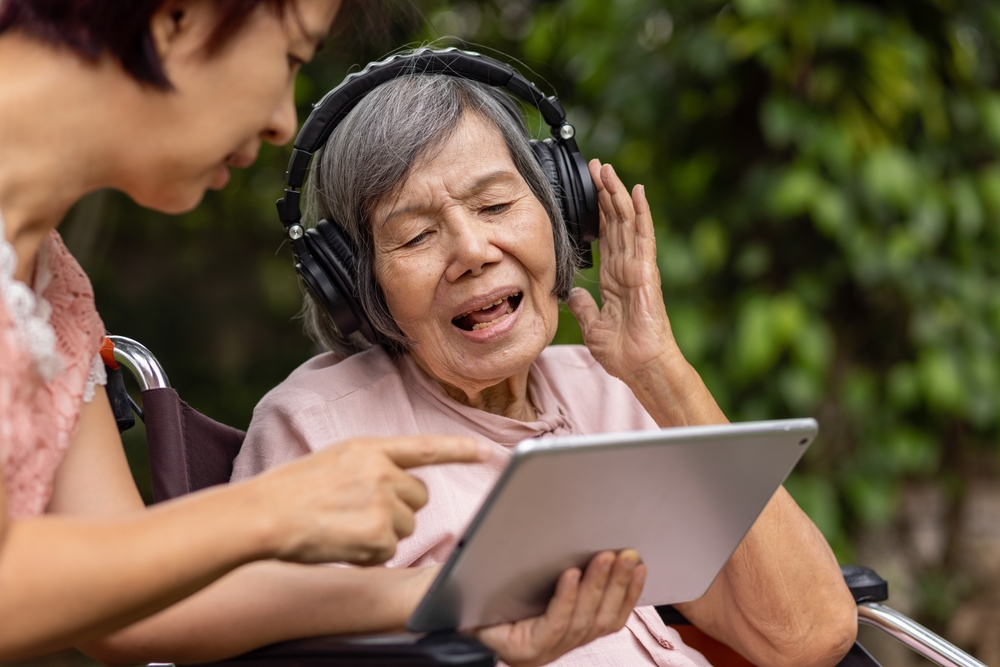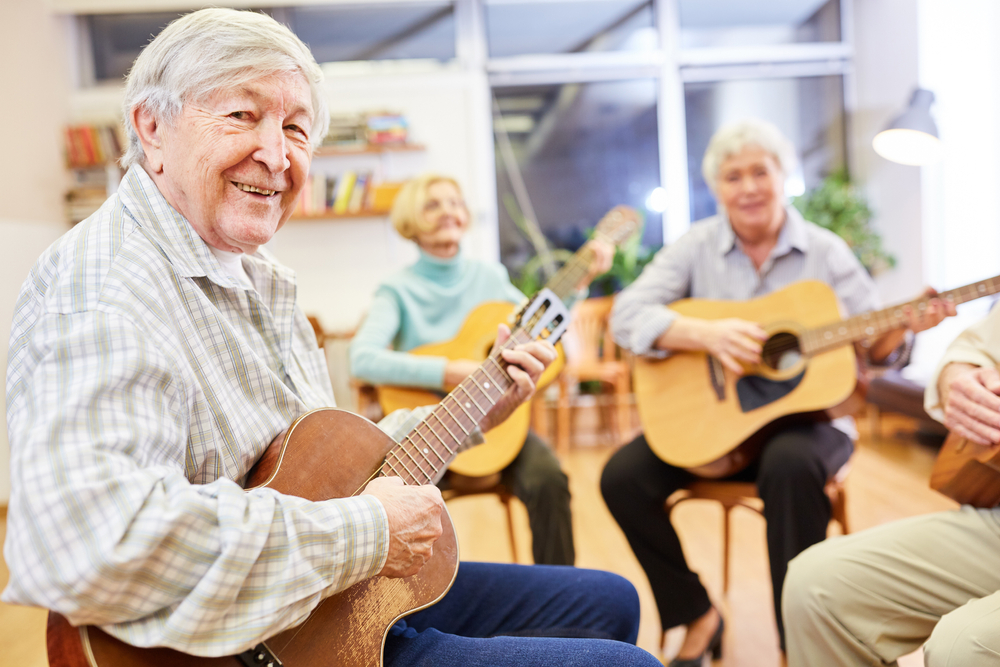 April 19, 2023
April 19, 2023
If music is the food of love, play on. This line from Shakespeare’s Twelfth Night shows that music is interwoven into all elements of our lives. If love is enough to help the ones we love, then by extension, music can help us feed our loved ones’ minds, bodies, and souls.
Music therapy has been around for many years as a means to help individuals with their emotional wellness as well as their mental acuity. In recent years, this treatment method has seen results regarding memory loss.
Memories are stored within our minds in connection to specific images or sounds. Therefore, music helps to open the door to long-hidden moments for those living with memory loss.
Music and Older Adults
Everyone can benefit from some downtime with music. Whether they get it from playing an instrument, singing songs alone or in a group, or listening to their favorite tunes, it all has positive effects on their lives.
Music has proven to provide benefits between generations and cultures through the connections made. After all, most people in the world can say they know of artists such as The Beatles, Elvis, or even more recently, Taylor Swift. When we listen to music, we understand each other more clearly.
The one group that benefits from music the most are older adults, especially ones who have memory loss conditions such as dementia or Alzheimer’s. These positive outcomes are numerous and give these individuals a new spark for life.
Help With Memory Loss
One of the reasons people tend to become more depressed as they age is directly related to their ability to recall specific memories. The harder time they have recalling information that previously came easily to them, the more frustrated they are with life.
Adding music to their daily therapy could assist with memory loss. This is because the spoken language center of the brain is different from the visual image center.
Not only that, music releases endorphins that create more positive emotions within seniors. This gives them a better chance of getting through each day with less stress, less depression, and more motivation to participate.
By ensuring your loved one has moments where music that is meaningful to them is played, you are ensuring they will have more progress with their memory. Sometimes it’s easier to recall something that is linked to a visual or auditory event than if you were asked to retell a memory verbally.
Allows for Reminiscing
How many times in your life have you heard a song come on and turned it up because it reminded you of a particular time in your past?
More than likely, you have a moment like that almost daily. The same can be said for folks with Alzheimer’s or dementia.
Hearing a song that they knew as a child – whether it was always played in their home or they sang it in church, is most likely to evoke memories that are otherwise unattainable.
Being taken back to that particular moment in time could be extremely positive for your loved one. It might give them a certain peace about them that nothing else can create. Or it reminds them that they have lived an eventful life and still have the ability to create more memories.
Exercises the Brain

There are ways that music helps memory loss without being directly linked to the recovery of memories. Similar to exercise, music activates multiple parts of the brain and body.
While simply listening to music exercises the recollection and visualization parts of the brain, playing the music yourself strengthens the cognitive and logical thinking parts of the brain.
It requires an individual to physically move their fingers properly to produce the music while their brain reads the musical notes on the page. Both of these actions have to occur in tandem, which in turn creates new pathways in their brain to make playing music easier.
These skills translate beyond music and allow your loved ones to gain more confidence in their abilities to face the challenges of aging head-on.
Music Creates Routines
When you incorporate music into your senior’s daily schedule, it can help them to create a memory. As memory loss becomes more prevalent in their life, one of the first things to go is their daily routine.
It becomes harder and harder for them to remember if they have done a specific daily activity because their brain connections are shutting down. However, as we stated above, music creates new neural pathways which allow memories to be recovered but also created in new ways.
By attaching certain daily activities to a particular song, your loved one will have an easier time remembering their day and whether or not they participated in important daily tasks – such as taking medicine or eating.
While these activities and routines may still disappear as their memory loss progresses, adding music will help slow the progression and make them more comfortable, which ultimately is what you want for your loved one.
Better Quality of Life
Overall, the benefit of adding music therapy to your aging loved one’s life can’t be understated. Music adds so much joy and positivity to the world around it.
As Shakespeare said, music directly correlates to lasting memories centered around love. Music makes us feel as though we are safe, understood, and never alone, which can all greatly enrich your senior’s experience with aging and memory loss.
Accessible Home Health Care is dedicated to staying on top of the latest therapies and offers options regarding music therapy to those with memory loss. We also have other tips on incorporating music into your loved one’s daily life.
Contact us today to discover all we can do for your family.



